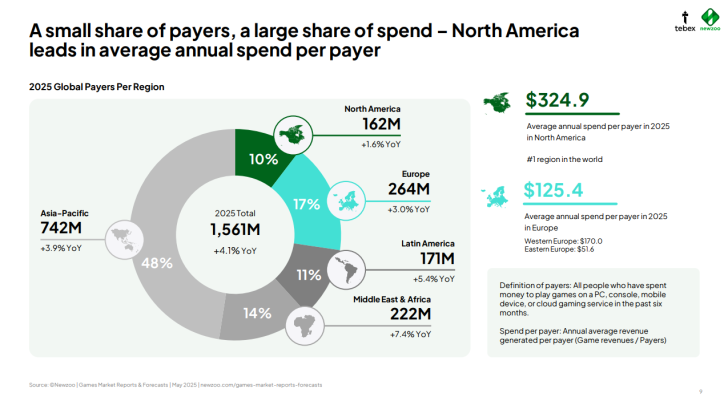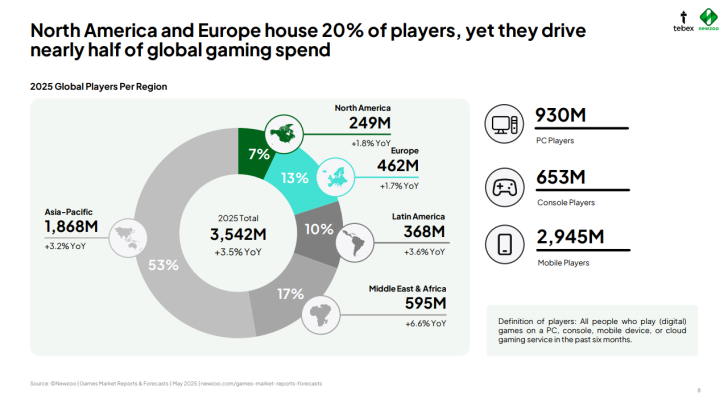A collaborative study between analytics leader Newzoo and monetization platform Tebex reveals critical insights into gaming expenditure patterns. The analysis, drawing from six months of global transaction data, highlights trends in consumer behavior across Western markets.
Published under the title Unlocking Games Revenue: Player Behavior and Payment Trends in the West, the document indicates players in North America and Europe collectively invest approximately $325 million annually in gaming. Notably, this substantial figure originates from just 20% of worldwide players—described as “A minority of players drive the majority of financial contributions” within the report.
Projections suggest the international gaming industry will surpass $188.9 billion by 2027, with Western regions accounting for 46% of total revenue.

The research clarifies terminology, defining active players as “Individuals engaging with digital games across any platform within the previous 180 days.” Platform distribution data underscores mobile dominance, with 2.945 billion mobile users overshadowing 930 million PC and 653 million console gamers.




While North American markets anticipate modest 1.1% yearly revenue growth through 2027, European regions show stronger potential at 3.1%. These projections prompt recommendations for developers to refine monetization approaches rather than pursuing user acquisition in saturated markets. Strategic emphasis should focus on enhancing payer loyalty through value-driven models.
Critical analysis within the paper stresses the necessity for adaptable monetization frameworks. Historic examples like Fortnite’s platform-agnostic model demonstrate successful audience retention strategies. However, the study cautions against universal application of microtransaction-heavy or premium pricing models, advocating for tailored solutions amid consumer price sensitivity.
Liam Wiltshire, Tebex’s Head of Payments, emphasizes transparency: “Modern gamers demand clear value propositions. Refining monetization to align with player preferences will determine sustained engagement and revenue growth.” The findings position adaptive monetization as critical for studios navigating evolving market conditions and shifting consumer expectations.

